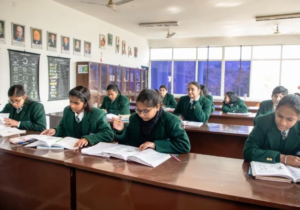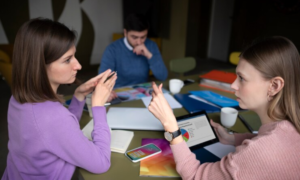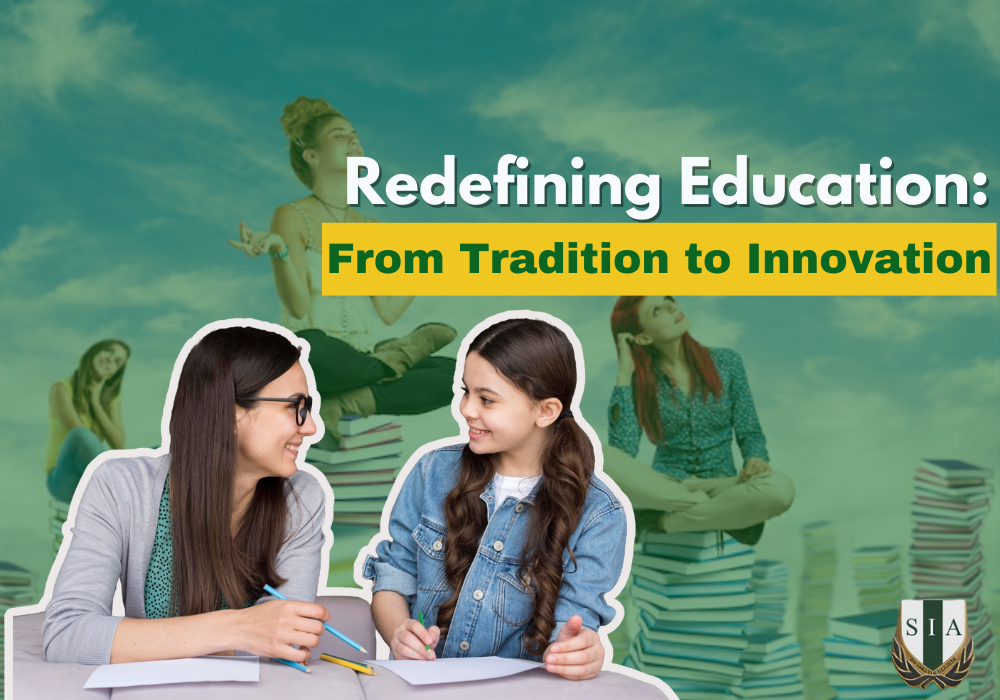Education has always been the cornerstone of societal growth, shaping minds and nurturing potential.
Over centuries, traditional methods of teaching have been the norm, rooted in structured classrooms, strict curriculums, and rote learning.
However, as the world evolves, Girls Boarding Schools in India so does the need for education to adapt.
This is where redefining education becomes essential in shigally school—a harmonious blend of tradition and innovation that prepares students for the complexities of the modern world while retaining the essence of timeless values.
Table of Contents
ToggleThe Foundation of Traditional Education

Traditional education, characterized by its teacher-centered approach, emphasizes discipline, structured learning, and academic rigor.
This system has proven effective for generations, fostering literacy, critical thinking, and foundational knowledge. The consistency of traditional education provides students and parents with a sense of stability and predictability, ensuring that core subjects are taught comprehensively.
However, the rigidity of this model often limits creativity and adaptability. Students are rarely encouraged to explore beyond the prescribed curriculum, leaving little room for individualized learning or the development of practical, real-world skills.
While tradition instills discipline and respect, it sometimes falls short in equipping students with the tools to navigate a rapidly changing world.
Redefining Education: A Paradigm Shift
The 21st century demands a reimagined approach to education—one that embraces innovation without discarding the valuable aspects of tradition.
Redefining education involves integrating technology, fostering creativity, and promoting lifelong learning while maintaining the foundational principles that have stood the test of time.
At its core, this transformation focuses on student-centered learning. This approach prioritizes the unique needs, interests, and strengths of each learner.
By shifting the focus from passive absorption of information to active engagement, students become more invested in their education, turning classrooms into dynamic spaces for exploration and discovery.
The Role of Technology in Redefining Education

Technology has emerged as a powerful catalyst for change in education. From smart classrooms equipped with interactive whiteboards to personalized learning apps, digital tools have revolutionized how students learn and interact with information.
Online platforms offer access to a wealth of resources, enabling students to dive deeper into subjects that interest them. Virtual reality (VR) and augmented reality (AR) make complex topics come alive, allowing students to explore historical events, scientific phenomena, and even distant planets in immersive ways.
For parents, technology brings transparency and engagement. Online portals provide real-time updates on their child’s progress, while video conferencing bridges the gap between home and school, fostering collaboration between educators and families.
While technology enhances education, it also underscores the importance of digital literacy. As students and parents embrace these tools, understanding their responsible use becomes crucial, ensuring that innovation complements traditional learning rather than replacing it.
Blending Creativity with Academics
One of the most significant aspects of redefining education is nurturing creativity alongside academics. Traditional systems often prioritize academic performance over creative pursuits, leading to a narrow focus on grades and standardized testing.
Innovative education models recognize that creativity is essential for problem-solving and innovation. Schools are now incorporating project-based learning, where students tackle real-world problems through interdisciplinary approaches.
Arts, music, and drama are no longer extracurricular activities but integral parts of the curriculum, encouraging students to think outside the box and express themselves.
This shift benefits not only students but also parents, who see their children developing well-rounded skills that extend beyond academics. Such an education system fosters confidence, resilience, and adaptability—traits essential for success in today’s dynamic world.
Redefining the Role of Teachers

In a redefined education system, teachers are no longer just dispensers of knowledge. Instead, they become facilitators, mentors, and guides, fostering an environment of collaboration and curiosity.
This new role requires educators to be adaptable and tech-savvy, blending traditional teaching methods with modern tools.
Professional development programs are equipping teachers with the skills to create engaging lesson plans, manage diverse classrooms, and incorporate technology effectively.
For students and parents, this shift enhances the learning experience. Teachers who inspire and mentor rather than dictate create a supportive environment where students feel valued and motivated to learn.
Lifelong Learning: A Pillar of Redefining Education
The concept of education has expanded beyond the classroom and the school years. Lifelong learning is now a cornerstone of redefining education, emphasizing that learning doesn’t end with graduation.
For students, this means cultivating a mindset of curiosity and adaptability. Programs that teach coding, financial literacy, and entrepreneurship from an early age prepare them for future challenges.
For parents, lifelong learning involves staying informed about the latest educational trends, understanding their child’s evolving needs, and even pursuing their personal development through online courses or workshops.
This holistic approach ensures that education becomes a continuous journey, enriching individuals at every stage of life.
Challenges and the Way Forward
While redefining education offers immense potential, it is not without challenges. Balancing innovation with accessibility remains a significant hurdle.
Many schools and families, especially in underserved communities, lack the resources to implement cutting-edge technologies or alternative learning models.
Addressing these disparities requires collaborative efforts from governments, educators, and private organizations. By investing in infrastructure, training, and inclusive policies, the vision of redefined education can become a reality for all.
Additionally, the shift towards innovation must not overshadow the importance of traditional values. Respect, discipline, and the appreciation of cultural heritage remain essential components of a well-rounded education.
The Future of Redefining Education
As the world continues to evolve, so too must education. The journey of redefining education is not about discarding the old but about merging the best of tradition with the potential of innovation.
For students, this means a richer, more engaging learning experience that equips them with the skills to thrive in an unpredictable future. For parents, it signifies a partnership with educators to create environments that nurture curiosity, creativity, and confidence in their children.
Ultimately, education is not just about imparting knowledge but about shaping individuals who can contribute meaningfully to society.
By embracing this transformative approach, we can ensure that education remains relevant, dynamic, and inclusive—a true reflection of the world it seeks to prepare us for.
In redefining education, we are not merely teaching; we are inspiring a new generation of learners, thinkers, and leaders.


